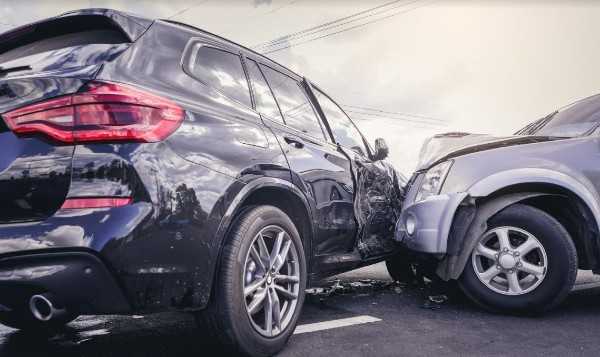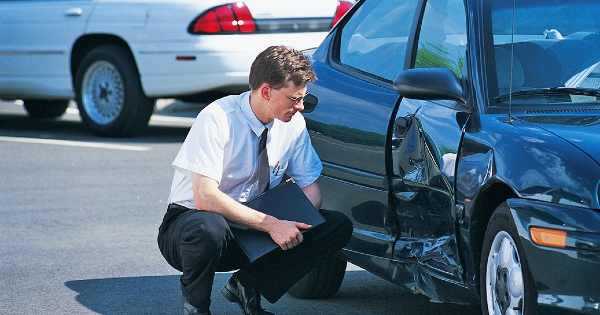After a car accident, emotions are running particularly high, and communication becomes crucial. But not all words are the same, however, and what you say or don’t say can be of great importance. This is what you should not say after a car accident. From press briefings immediately following the accident to insensitive comments and apology difficulties, the power of your words can guide you more comfortably through the aftermath and help you to a better resolution. Remember to speak with an experienced personal injury attorney in McAllen, Texas before jumping to any conclusions or trying to get compensation on your own.

Immediate Post-Accident Statements to Avoid
What you say in the hours and even days following a car accident can dramatically impact the situation. We must not give way to hasty blame and instead stress that neither insurance companies nor authorities can determine fault until there is solid evidence and a thorough investigation.
- “It’s not my fault!”: If blame is assigned too quickly, tensions can increase to the point of confrontation, making a peaceful outcome more difficult to achieve. If the wrongdoer falsely declares himself innocent prematurely, it could impede a fair and objective assessment of the accident by the insurance companies and authorities.
- “I`m okay, don’t worry about me”: It is important to point out that some injuries may take a while to show up. Internal injuries or delayed symptoms can arise, so it is important to encourage patients to seek medical attention and report any discomfort.
- ” Let’s settle the matter without resorting to insurance.”: If the settlement is properly documented, it becomes likely that the account is complete or biased, which would affect the fairness of the settlement. Involving insurance is particularly important because legal protection cannot be attained unless all parties have played a role, and because complete compensation and coverage can be provided only if the insured, the amount of compensation, and compensation for property damage are accurately controlled.
Insensitive Comments
Insensitive remarks are not advisable after a car accident, for they tend to increase an already distressed environment and may prevent a cooperative resolution.
- “I saw it coming”: This should be discouraged because it is negative, implies fault, creates a heated atmosphere, and makes the post-accident environment less cooperative. It also encourages personal interpretations: All parties concerned should be encouraged to focus on the presentation of factual information rather than personal opinions, thereby ensuring an objective assessment.
- “My insurance will take care of everything”: This is not advisable because it does not clarify the limitations of coverage and may give people a false sense of security. It is also very important to gather information and meticulously document the scene. If you rely solely on the insurance, the accounts could prove incomplete or biased, and the accuracy of the claims process and any legal proceedings that may follow could be less clear.
Speculative Statements
After a car accident, to avoid bringing negative consequences, one should not make any speculations.
- “I think the other driver was…”: This is not advisable because there is a potential for misinformation. When speculations are incorporated into the accident story, they may impart misinformation and give a biased account, making a fair and objective assessment difficult for the accident authorities and insurance companies. All parties involved should concentrate on facts rather than speculation.
- “I’m not injured; I don’t need to see a doctor”: Many people underestimate the importance of professional medical evaluation after a car accident. Some symptoms are delayed and can go undetected. For this reason, sometimes downplaying the need for a medical evaluation can have catastrophic consequences. This is especially important because any undetected injuries may have long-term health effects, and may even jeopardize insurance claims if not properly documented.
Apology Dilemmas
Apology dilemmas should be approached with caution after a car accident due to the potential legal ramifications.
- “I’m so sorry; it was all my fault”: While expressing empathy and concern for the situation is important, it’s crucial to avoid admissions of fault until all facts are known. Admitting fault can have significant legal implications, potentially complicating insurance claims and legal proceedings. It is essential to discuss the potential consequences of such admissions and encourage expressing concern for the situation without accepting explicit blame.
- “I didn’t see you”: It may seem like a straightforward acknowledgment, but it has its pitfalls Similar to the previous situation, this statement can be used against you in legal proceedings. It is recommended to avoid admissions of fault until all facts are known, allowing for a comprehensive and unbiased assessment of the situation. This approach helps protect individuals involved from unintended legal consequences and ensures a fair resolution in the aftermath of a car accident.
Victim-Blaming Statements
Lastly, Victim-blaming has no place after a car accident. It does not resolve conflict but only worsens the situation.
- “Why were you driving so fast?”: is not advisable because victim blaming transfers responsibility back onto the injured party. It creates a harsh climate and prevents cooperation. It is necessary to promote a cooperative spirit for solving the problem. Focusing on a shared responsibility for understanding what’s going on and working out a reasonable settlement creates a more optimistic and cooperative atmosphere post-accident. People can thus participate in an amicable and understanding resolution process through the avoidance of victim-blaming.
It`s crucial to remember the importance of communication when handling the aftermath of a collision. It warns us of the potential negative consequences of saying certain things. It also underlines the need to avoid impromptu post-accident comments imputing blame, because rash declarations of innocence can exacerbate tension and block a balanced assessment by insurance companies and authorities.

